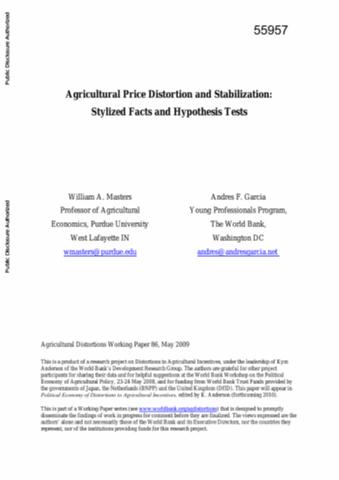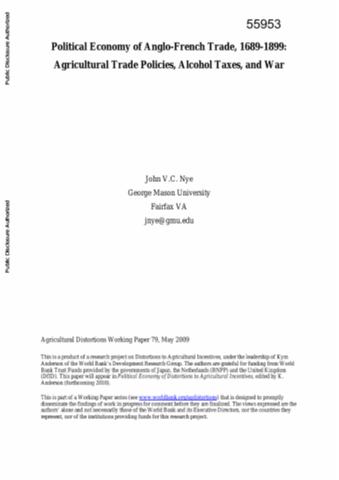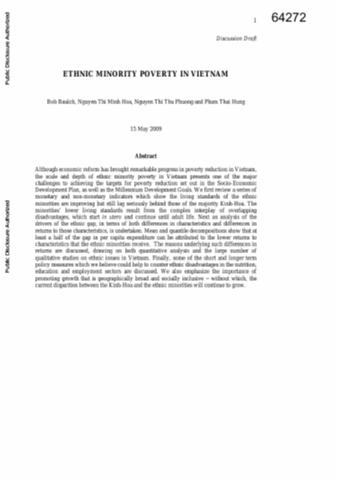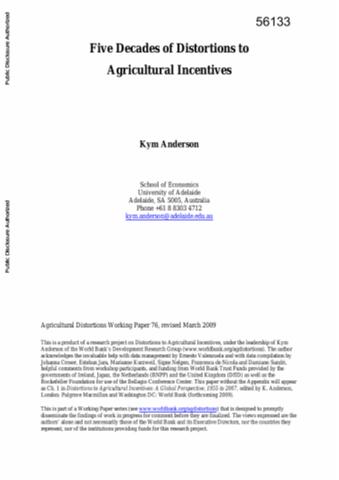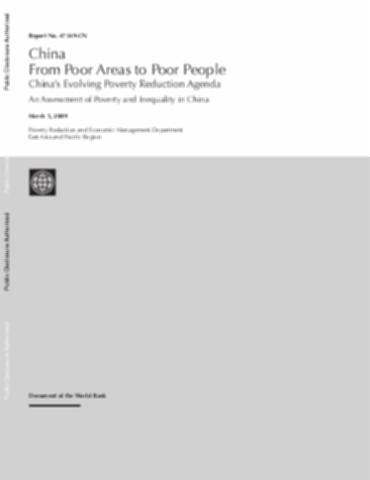The World Bank is a vital source of financial and technical assistance to developing countries around the world. We are not a bank in the ordinary sense but a unique partnership to reduce poverty and support development. The World Bank Group has two ambitious goals: End extreme poverty within a generation and boost shared prosperity.
- To end extreme poverty, the Bank's goal is to decrease the percentage of people living on less than $1.25 a day to no more than 3% by 2030.
- To promote shared prosperity, the goal is to promote income growth of the bottom 40% of the population in each country.
The World Bank Group comprises five institutions managed by their member countries.
The World Bank Group and Land: Working to protect the rights of existing land users and to help secure benefits for smallholder farmers
The World Bank (IBRD and IDA) interacts primarily with governments to increase agricultural productivity, strengthen land tenure policies and improve land governance. More than 90% of the World Bank’s agriculture portfolio focuses on the productivity and access to markets by small holder farmers. Ten percent of our projects focus on the governance of land tenure.
Similarly, investments by the International Finance Corporation (IFC), the World Bank Group’s private sector arm, including those in larger scale enterprises, overwhelmingly support smallholder farmers through improved access to finance, inputs and markets, and as direct suppliers. IFC invests in environmentally and socially sustainable private enterprises in all parts of the value chain (inputs such as irrigation and fertilizers, primary production, processing, transport and storage, traders, and risk management facilities including weather/crop insurance, warehouse financing, etc
For more information, visit the World Bank Group and land and food security (https://www.worldbank.org/en/topic/agriculture/brief/land-and-food-security1
Resources
Displaying 4731 - 4735 of 4907Agricultural Price Distortion and Stabilization
This paper describes agricultural policy choices and tests some predictions of political economy theories. It begins with three broad stylized facts: governments tend to tax agriculture in poorer countries, and subsidize it in richer ones, tax both imports and exports more than nontradables and tax more and subsidize less where there is more land per capita.
Political Economy of Anglo-French Trade, 1689-1899
Britain contrary to received wisdom was not a free trader for most of the 1800s and, despite repeal of the Corn Laws, continued to have higher tariffs than the French until the last quarter of the century. War with Louis fourteenth from 1689 led to the end of all trade between Britain and France for a quarter of a century. The creation of powerful protected interests both at home and abroad led to the imposition of prohibitively high tariffs on French imports notably on wine and spirits, when trade with France resumed in 1714.
Ethnic Minority Poverty in Vietnam
Although economic reform has brought remarkable progress in poverty reduction in Vietnam, the scale and depth of ethnic minority poverty in Vietnam presents one of the major challenges to achieving the targets for poverty reduction set out in the Socio-Economic Development Plan, as well as the millennium development goals. The authors first review a series of monetary and non-monetary indicators which show the living standards of the ethnic minorities are improving but still lag seriously behind those of the majority Kinh-Hoa.
Five Decades of Distortions to Agricultural Incentives
This chapter begins with a brief summary of the long history of national distortions to agricultural markets. It then outlines the methodology used to generate annual indicators of the extent of government interventions in markets, details of which are provided in Anderson and appendix A.
China - From Poor Areas to Poor People : China’s Evolving Poverty Reduction Agenda - An Assessment of Poverty and Inequality in China
China's progress in poverty reduction over the last 25 years is enviable. One cannot fail to be impressed by what this vast nation of 1.3 billion people has achieved in so little time. In terms of a wide range of indicators, the progress has been remarkable. Poverty in terms of income and consumption has been dramatically reduced. Progress has also been substantial in terms of human development indicators. Most of the millennium development goals have either already been achieved or the country is well on the way to achieving them.






